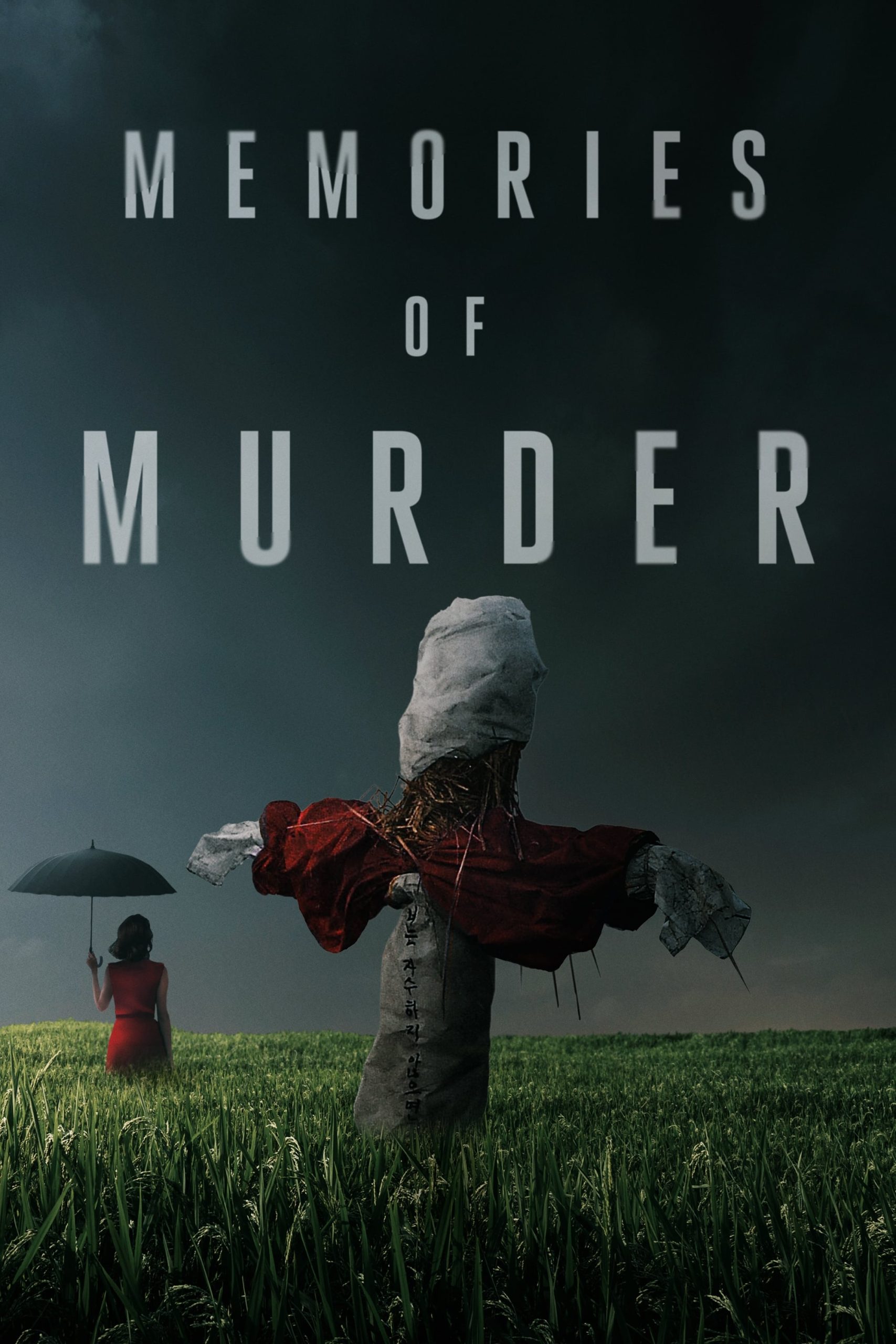
During the late 1980s, two detectives in a South Korean province attempt to solve the nation's first series of rape-and-murder cases.
27 Feb Memories of Murder (2003)
Watchers
Excepting Snowpiercer, this filmmaker has a distinct style. He surveys watchers and watching by creating and weaving layers. So far as I know, this is his masterwork.
This filmmaker sees differently. He sees people seeing, weaves stories around this to keep us engaged, then simply shows watching.
The story here is superficially a murder investigation. A serial murderer preys on girls in a small city that seems to be dependent on a quarry. Rain is involved, and the apparent trigger of a requested popular song on the local radio station.
A pair of local detectives work the case, aided by their police chief boss and a more seasoned detective from Seoul. They speculate, beat suspects and fail to solve the mystery by the end of the movie. The interpersonal dynamics among these men matter, but I won’t write about that here. They are simply an excuse to twist a police procedural into a related set of cinematic essays about seeing and believing.
Our primary watcher is the senior detective on the case. There are two others with radically different ways of reacting. We have girls, a psychic, the detective’s girlfriend, a mentally challenged witness, film crews, lingering townspeople…
We have the murderer of course, who we glimpse hiding in the scrub, watching. And there are more than one suspect. Some of these move from watcher to being watched. The shifting fabric gives us a story.
The novelty here is that we as watchers don’t particularly notice that this is very experimental narrative, exploring what you see and what you remember. It seems like a regular murder mystery, until the end when it becomes clear the murderer is not revealed.
Posted in 2015
Ted’s Evaluation — 3 of 3: Worth watching.


No Comments